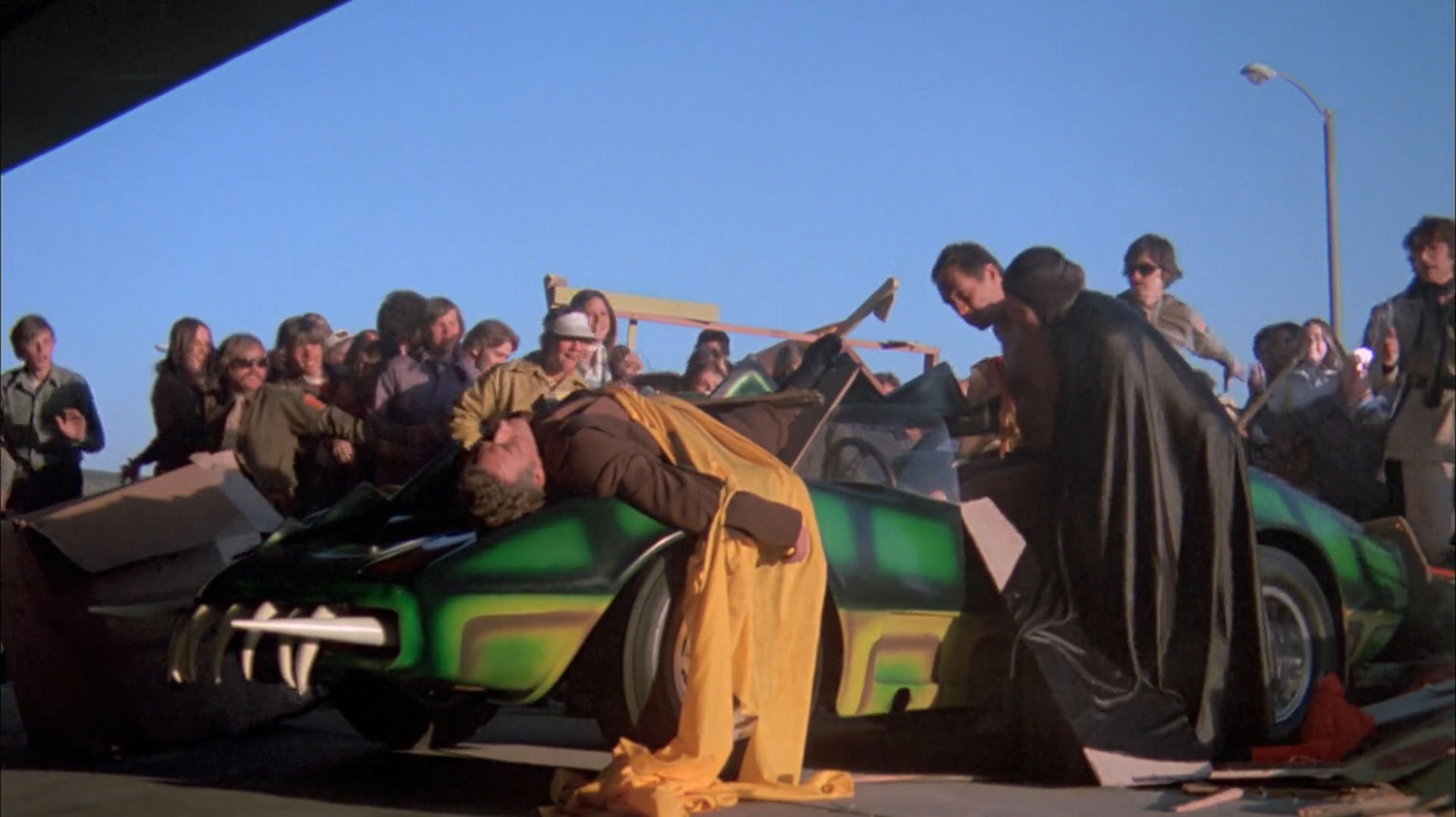
The lines come quickly and funnily – “If everyone scatters go for the baby and mother,” Martin Kove instructs his co-driver as they head for a group of picnickers. The actual details of point-scoring in the Death Race are hidden up until Sylvester Stallone first runs down the construction worker, whereupon commentator Don Steele appears on screen and starts yelling, “too bad he was only 38, two more years and he’d be worth three times the points.” The drollness of the comedy mounts with debates over whether David Carradine can score by running down race officials or Sylvester Stallone his own track crew.

Frankenstein (David Carradine) with his co-driver Simone GriffethĪnd, as with any Roger Corman film, Death Race 2000 contains at least several up and coming talents hoping to break into the industry including a young Sylvester Stallone Martin Kove, who would become a minor B action star in the 1990s a young John Landis, later director of The Blues Brothers (1980) and An American Werewolf in London (1981) in the role of a mechanic and shooting second unit a young Lewis Teague, later director of Alligator (1980), Cujo (1983) and Navy Seals (1988).ĭeath Race 2000 is directed, edited and photographed in a crude and unappealing way but inside hides a drollness. Subsequently, David Carradine managed to etch out for himself the role of a sort of Zen Clint Eastwood in a number of low-budget films like this.
Death race 2000 car series#
Death Race 2000 starred David Carradine, who had just come off the end of his cult tv series Kung Fu (1972-5). Also on board was Paul Bartel’s Raoul and frequent co-star, low budget cult queen Mary Woronov. Bartel had previously directed the little-seen kinky black comedy Private Parts (1972) and would go onto create the cult black comedy Eating Raoul (1982) about a couple killing swingers. Griffith who scripted some Corman’s more amusing cult films like A Bucket of Blood (1959) and The Little Shop of Horrors (1960) and Robert Thom, who wrote the quirkily satirical science-fiction film Wild in the Streets (1968) and the very strange The Witch Who Came From the Sea (1976). In the producer’s seat was Roger Corman and on the script were Ib Melchior, a B-budget director/producer of the 1960s who made films like The Angry Red Planet (1959), Reptilicus (1961), Journey to the Seventh Planet (1962) and The Time Travelers (1964) Charles B.


Indeed, Death Race 2000 gained a cult reputation in some quarters for a number of years.ĭeath Race 2000 brings together some of the more fertile talents that were then gathered under the New World Pictures roof. The irony is that Death Race 2000 was a far more enjoyable film than the much more ponderous and heavy-handed Rollerball was. This quirky little low-budget production was designed to exploit the success of the far bigger budgeted Rollerball (1975) and its vision of future sports.


 0 kommentar(er)
0 kommentar(er)
